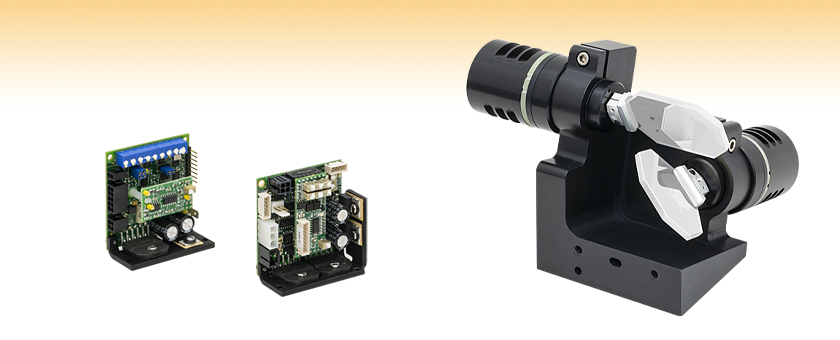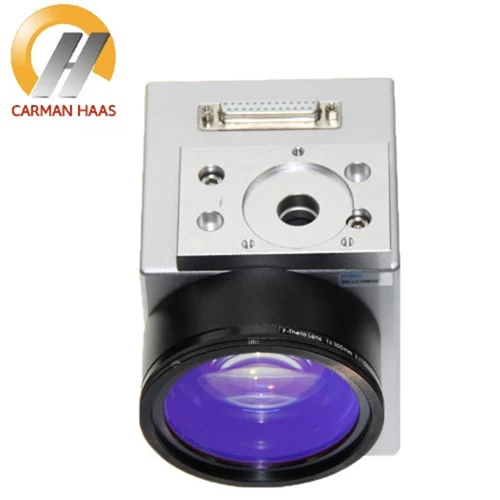Exactly How a Galvanometer Scanner Improves Efficiency in Laser Scanning Technologies
The integration of galvanometer scanners in laser scanning modern technologies represents a pivotal improvement in precision engineering. By facilitating rapid and exact changes of laser light beam instructions, these tools considerably enhance operational effectiveness across various applications, from clinical imaging to industrial inscription.
Understanding Galvanometer Scanners
A galvanometer scanner is a sophisticated gadget that leverages electro-magnetic concepts to accomplish specific angular movement of mirrors or various other reflective surface areas. These scanners operate through the interaction of an electric present and an electromagnetic field, allowing quick and precise positioning. This technology is necessary in applications requiring high-speed scanning, such as laser inscription, optical interaction, and clinical imaging.

Galvanometer scanners are typically defined by their fast response times and high angular resolution, making them excellent for applications that demand quick activities and precise placing. Their integrity and efficiency make them an essential element in contemporary laser scanning innovations, contributing significantly to advancements in numerous fields, including production, medical care, and telecommunications.
Device of Laser Beam Control

The control mechanism counts on closed-loop feedback systems that constantly check the beam of light's position. The signals from optical sensors supply real-time information to the control system, enabling quick modifications to maintain precision. This is vital in applications where even mild deviations can compromise the top quality of the scan or engraving.
In addition, the galvanometer's action time is vital; high-speed electric motors enable speedy movements, making certain that the laser light beam can quickly trace complicated patterns or execute complex operations. The integration of digital signal processing additionally enhances the responsiveness and precision of the galvanometer scanner. Generally, the device of laser beam of light control via galvanometer scanners exhibits the blend of innovative design and innovation, generating high-performance outcomes in laser scanning applications.
Advantages of Boosted Accuracy
Improved accuracy in laser scanning technologies provides significant benefits across various applications, from commercial manufacturing to clinical treatments. The assimilation of galvanometer scanners enables highly exact beam positioning, which is critical for jobs needing thorough information. This enhanced accuracy ensures that the laser can target details locations with very little variance, leading to remarkable high quality outcomes.
In commercial contexts, specific laser scanning leads to improved item uniformity and decreased product waste. In medical applications, the accuracy of laser procedures can considerably affect person results.
Furthermore, read here enhanced precision helps with sophisticated applications such as 3D imaging and microfabrication, where even minute mistakes can result in considerable errors. By giving repeatable and dependable laser positioning, galvanometer scanners add to the overall performance and effectiveness of laser systems. In recap, the advantages of enhanced accuracy not just improve operational performance but likewise boost the requirements of top quality and safety and security in different industries.
Applications in Numerous Industries
The flexibility of galvanometer scanners in laser scanning technologies expands across several sectors, each profiting from the accuracy they supply. In the clinical field, these scanners are essential in applications such as laser surgery and imaging, enabling for extremely accurate targeting of cells while decreasing damages to bordering areas - galvanometer scanner. Their quick response and fine resolution are crucial in generating high-grade results
In the production field, galvanometer scanners improve processes like laser engraving and cutting. Their capacity to quickly guide laser beam of lights onto surface areas allows efficient production lines, boosting speed and accuracy in creating detailed designs or elements.
The auto industry likewise takes advantage of on galvanometer innovation for quality assurance and assessments (galvanometer scanner). By using high-speed scanning, producers can spot problems in products or assemblies, making certain that products meet rigid standards
In addition, in the amusement field, galvanometer scanners are used in laser light shows and display screens, providing dynamic aesthetic experiences with accurate control over laser activities.
Future Patterns in Laser Scanning
Emerging modern technologies are positioned to transform the landscape of laser scanning, with galvanometer scanners at the forefront of this change. As markets increasingly demand accuracy and performance, the evolution of galvanometer modern technology will certainly drive substantial improvements in laser scanning applications.
Future trends suggest an expanding integration of expert system and artificial intelligence algorithms, which will enhance data processing abilities and automate decision-making in real-time. This synergy will enable a lot more sophisticated evaluation of checked information, bring about boosted precision in applications such as 3D modeling and self-governing navigating.
Additionally, the miniaturization of parts and the development of sophisticated products will certainly contribute to lighter, extra mobile laser scanning browse around these guys systems. This portability will certainly expand the reach of laser scanning modern technologies into formerly inaccessible settings, such as remote surface and complex architectural areas.
The surge of increased fact (AR) and digital reality (VIRTUAL REALITY) applications will certainly additionally shape the future of laser scanning. By incorporating galvanometer scanners with AR and virtual reality, customers will gain from immersive experiences that improve visualization and project planning.
Final Thought
In verdict, galvanometer scanners play a critical function in optimizing laser scanning modern technologies via their specific control of beam instructions and quick angular changes. The assimilation of sophisticated feedback systems and optical sensing units dramatically improves functional rate and accuracy, leading to improved outcomes in applications such as laser inscription and clinical imaging. As markets increasingly take on these technologies, the continuous improvements in galvanometer scanner styles are anticipated to further raise performance standards and widen application possibilities.
The assimilation of galvanometer scanners in laser scanning innovations represents a have a peek here crucial innovation in precision engineering. Overall, the system of laser light beam control via galvanometer scanners exhibits the combination of sophisticated engineering and innovation, generating high-performance outcomes in laser scanning applications.
By offering repeatable and dependable laser positioning, galvanometer scanners add to the total effectiveness and performance of laser systems.The adaptability of galvanometer scanners in laser scanning modern technologies prolongs across several industries, each benefiting from the accuracy they supply.In final thought, galvanometer scanners play a crucial duty in maximizing laser scanning technologies with their precise control of light beam instructions and quick angular changes.